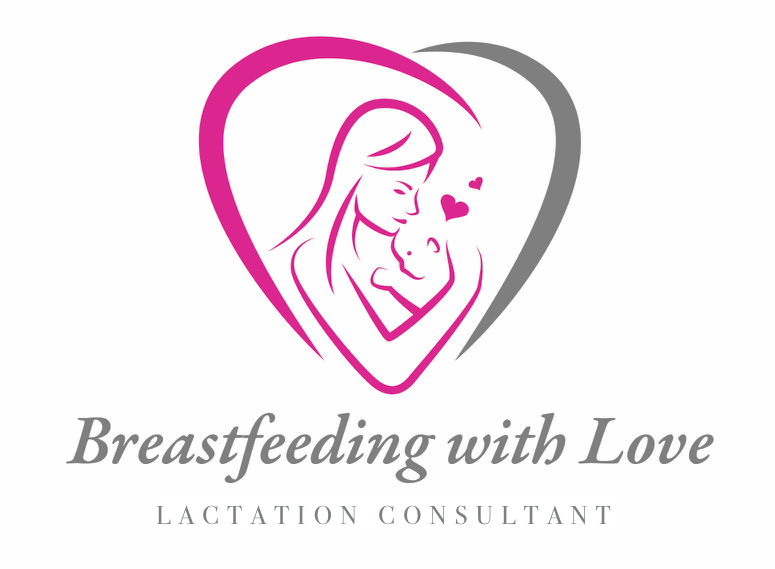Going Back To Work: Working While Breastfeeding
"I was returning to work and I called Betty Greenman. She took the time out to figure out a good schedule for me to breastfeed while I was home and to pump while I was at work. You really get individualized attention using Betty Greenman. She is amazing for taking the time out of her busy day and doing this for me." Sandy G.
If you are returning back to work, you can call me and we can have a private consultation in your home. Together we can come up with a schedule for you on how often you need to pump while you are at work. If you have seen me all ready, there is no additional charge for this phone call.
Breastfeeding while working is manageable. If you are planning on returning to work, start pumping a week before you return to work so your body can get used to this as your supply adjusts. This will also help you become familiar with how much you baby needs while you are at work. By the sixth week a baby usually takes anywhere from 25 to 35 ounces within a 24 hour period often with each feed the baby can take 3 to 5 ounces. Breastfed babies can take occasional bottles. Picking the right pump that delivers the same pace of flow as your breast is a good idea. Sometimes, starting a baby on a pacifier and then introducing a baby to a bottle with a similar nipple helps shape the baby to accept a bottle better. A cup or spoon can be a good alternative to put breast milk in if the baby refuses a bottle. Finger feeding can also be used as an alternative feeding method. A Lactation Consultant can show you how to use this method.
The Patient Protection and Affordable Care Act (H.R. 3590) was signed into law in March 2010. Among many provisions, Section 4207 of the law amends the Fair Labor Standards Act of 1938 to require an employer to provide reasonable break time and a private place, other than a bathroom, for one year each time the breastfeeding (non-exempt) employee wishes to express milk. Further, these requirements shall not preempt a state law that provides greater protections to employees.
The health insurance reform bill signed on March 23, 2010 by the President Obama contains an employment law change. Section 4207 amends the federal Fair Labor Standards Act to mandate unpaid breaks for expressing milk, in a location other than bathroom. Because it is part of the FLSA, its provisions apply to almost all employers, although those with fewer than 50 workers will not be covered if they can show that compliance would cause undue hardship.
The Patient Protection and Affordable Care Act amends the FLSA as follows:
SEC. 4207. REASONABLE BREAK TIME FOR NURSING MOTHERS.
Section 7 of the Fair Labor Standards Act of 1938 (29 U.S.C. 207) is amended by adding at the end the following:
(1) An employer shall provide-
(A) a reasonable break time for an employee to express breast milk for her nursing child for 1 year after the child's birth each time such employee has need to express the milk; and
(B) a place, other than a bathroom, that is shielded from view and free from intrusion from coworkers and the public, which may be used by an employee to express breast milk.
(2) An employer shall not be required to compensate an employee receiving reasonable break time under paragraph (1) for any work time spent for such purpose.
(3) An employer that employs less than 50 employees shall not be subject to the requirements of this subsection, if such requirements
would impose an undue hardship by causing the employer significant difficulty or expense when considered in relation to the size, financial resources, nature, or structure of the employer's business.
(4) Nothing in this subsection shall preempt a State law that provides greater protections to employees than the protections provided
for under this subsection
United States Department Of Labor- Break Time For Nursing Mothers Under The FLSA
http://www.dol.gov/whd/regs/compliance/whdfs73.htm
This is part of what they say below.
Wage and Hour Division (WHD)
(Revised August 2013)
Fact Sheet #73: Break Time for Nursing Mothers under the FLSA
This fact sheet provides general information on the break time requirement for nursing mothers in the Patient Protection and Affordable Care Act (“PPACA”), which took effect when the PPACA was signed into law on March 23, 2010 (P.L. 111-148). This law amended Section 7 of the Fair Labor Standards Act (FLSA).
General Requirements
Employers are required to provide “reasonable break time for an employee to express breast milk for her nursing child for 1 year after the child’s birth each time such employee has need to express the milk.” Employers are also required to provide “a place, other than a bathroom, that is shielded from view and free from intrusion from coworkers and the public, which may be used by an employee to express breast milk.”
The FLSA requirement of break time for nursing mothers to express breast milk does not preempt State laws that provide greater protections to employees (for example, providing compensated break time, providing break time for exempt employees, or providing break time beyond 1 year after the child’s birth).
Time and Location of Breaks
Employers are required to provide a reasonable amount of break time to express milk as frequently as needed by the nursing mother. The frequency of breaks needed to express milk as well as the duration of each break will likely vary.
A bathroom, even if private, is not a permissible location under the Act. The location provided must be functional as a space for expressing breast milk. If the space is not dedicated to the nursing mother’s use, it must be available when needed in order to meet the statutory requirement. A space temporarily created or converted into a space for expressing milk or made available when needed by the nursing mother is sufficient provided that the space is shielded from view, and free from any intrusion from co-workers and the public.
Coverage and Compensation
Only employees who are not exempt from section 7, which includes the FLSA’s overtime pay requirements, are entitled to breaks to express milk. While employers are not required under the FLSA to provide breaks to nursing mothers who are exempt from the requirements of Section 7, they may be obligated to provide such breaks under State laws.
Employers with fewer than 50 employees are not subject to the FLSA break time requirement if compliance with the provision would impose an undue hardship. Whether compliance would be an undue hardship is determined by looking at the difficulty or expense of compliance for a specific employer in comparison to the size, financial resources, nature, and structure of the employer’s business. All employees who work for the covered employer, regardless of work site, are counted when determining whether this exemption may apply.
Employers are not required under the FLSA to compensate nursing mothers for breaks taken for the purpose of expressing milk. However, where employers already provide compensated breaks, an employee who uses that break time to express milk must be compensated in the same way that other employees are compensated for break time. In addition, the FLSA’s general requirement that the employee must be completely relieved from duty or else the time must be compensated as work time applies.
FLSA Prohibitions on Retaliation
Section 15(a)(3) of the FLSA states that it is a violation for any person to “discharge or in any other manner discriminate against any employee because such employee has filed any complaint or instituted or caused to be instituted any proceeding under or related to this Act, or has testified or is about to testify in any such proceeding, or has served or is about to serve on an industry committee.”
Employees are protected regardless of whether the complaint is made orally or in writing. Complaints made to the Wage and Hour Division are protected, and most courts have ruled that internal complaints to an employer are also protected.
Any employee who is “discharged or in any other manner discriminated against” because, for instance, he or she has filed a complaint or cooperated in an investigation, may file a retaliation complaint with the Wage and Hour Division or may file a private cause of action seeking appropriate remedies including, but not limited to, employment, reinstatement, lost wages and an additional equal amount as liquidated damages.
For additional information, visit our Wage and Hour Division Website:http://www.wagehour.dol.govand/or call our toll-free information and helpline, available 8 a.m. to 5 p.m. in your time zone, 1-866-4USWAGE (1-866-487-9243).
This publication is for general information and is not to be considered in the same light as official statements of position contained in the regulations.

